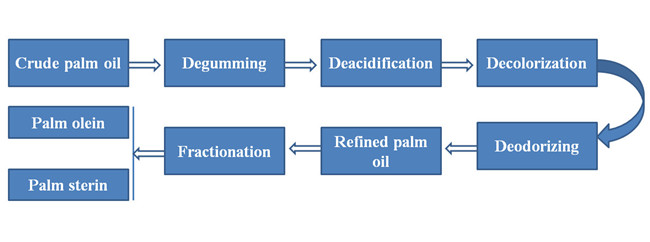Palm oil is the world's second largest edible vegetable oil, and it plays an extremely important role in cooking and food manufacturing. However, crude palm oil contains many colloidal impurities, pigments, and odorous substances that can impact both its quality and safety. Some of these substances are harmful to people's health, and to ensure its suitability for consumption, crude palm oil undergoes a rigorous refining process.
The palm oil purification process
The typical refining process of palm oil is physical refining. The main process flow is: crude palm oil→degumming→deacidification→decolorization→deodorization→refined palm oil. The purpose of palm oil refining is to remove various impurities in crude palm oil. After deodorization, the impurities in the crude palm oil are removed and refined palm oil can be obtained.

Among them, decolorization is the most important part of palm oil refining process, and it is also a key factor in determining palm oil refining cost and quality. At present, for the most effective method of palm oil decolorization method, activated carbon and activated clay are commonly used together to promote decolorization and purify oil. Activated carbon can effectively remove polycyclic aromatic hydrocarbons of macromolecules that cannot be adsorbed by clay (while the deodorization process, activated clay can only remove polycyclic aromatic hydrocarbons containing 4 or less low molecular weight). Activated carbon has a particularly strong adsorption effect on polycyclic aromatic hydrocarbons. Even if the activated carbon filter cake is pressed, the filtered oil does not contain polycyclic aromatic hydrocarbons..jpg)
Activated carbon's superior adsorption properties ensure that even after filtration, the refined oil remains free from harmful polycyclic aromatic hydrocarbons. This dual approach of using activated carbon and activated clay enhances the overall purification process of palm oil, meeting stringent quality standards for consumption.
Conclusion
Southeast Asian countries lead global palm oil production, driving significant demand for decolorizing agents such as activated clay and activated carbon in the refining industry. This sector imports nearly 3.6 million tons annually to purify palm oil, ensuring compliance with safety and quality standards. Zhulin activated carbon plays a pivotal role in this process, guaranteeing effective decolorization and purification. For more information on how Zhulin carbon enhances palm oil refining, please contact us today.

